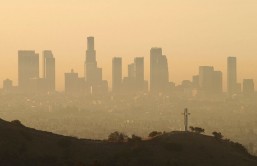A new commentary from the Intergovernmental Panel on Climate Change (IPCC) suggests the official global target rise of two-degrees Celsius is "utterly inadequate" for protecting those with the highest risk of falling victim to climate change's effects.
The findings highlight the "unevenly distributed risks and political power differentials" of high income countries pushing for a two-degree target and middle and low-income countries pushing for 1.5 Celsius, Biomed Central reported. The two-degree target is believed to come with increased risks such as sea level rise and extreme weather events. The discussions were part of the United Nations Framework Convention on Climate Change's (UNFCCC) structured expert dialogue.
"A low temperature target is the best bet to prevent severe, pervasive, and potentially irreversible impacts while allowing ecosystems to adapt naturally, ensuring food production and security, and enabling economic development to proceed in a sustainable manner," said author Petra Tschakert from The Pennsylvania State University and a coordinating lead author of the IPCC's Fifth Assessment Report.
The two-degree target is currently being evaluated, but the researchers noted no reference to an explicit 1.5-degree target was mentioned in the 2014 Lima Call for Climate Action. A representative of the World Health Organization at the session stressed there are already significant health impacts associated with climate change, such as rises in malnutrition and water-borne infections.
About 10,000 excess deaths have been attributed to the Russian heat wave, and these weather events, along with floods and hurricanes, will likely increase in frequency in a world that is two-degrees warmer. Limiting temperature rise to 1.5 degrees could also keep sea level rise below one meter, saving about half of the world's coral and keeping some Arctic summer sea ice frozen.
"These implications emphasize what is truly at stake - not a scientific bickering of what the most appropriate temperature target ought to be, but a commitment to protect the most vulnerable and at risk populations and ecosystems, as well as the willingness to pay for abatement and compensation. This should happen now, and not only when climate change hits the rich world," Tschakert said.
The findings were published in a recent edition of the open access journal Climate Change.








